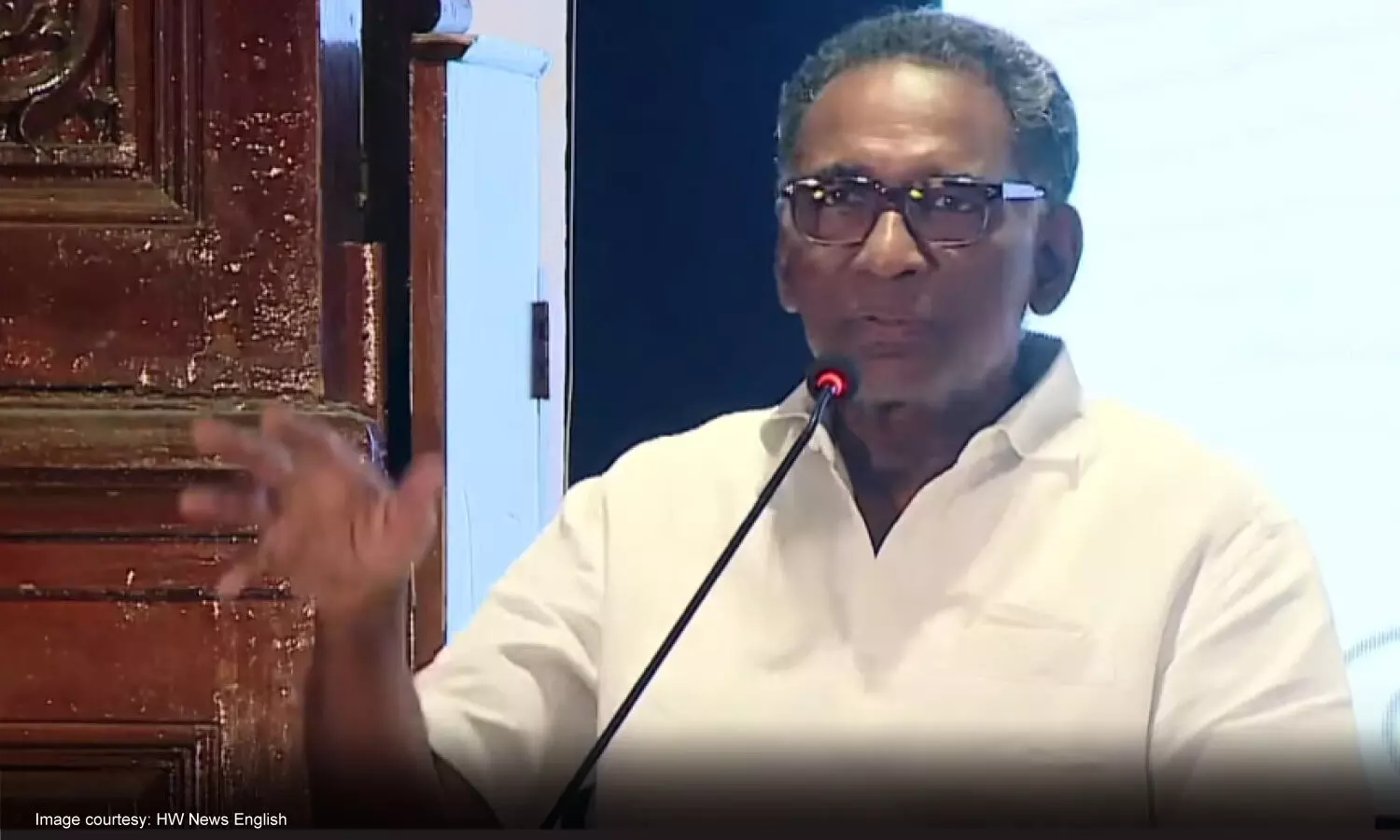
Our Constitutional System Is A Colonial Legacy, Constitution Was Not Written On Clean Slate: Justice Chelameswar
 |
|Former Judge of the Supreme Court, Justice Jasti Chelameswar has said that the Constitution of India was not written on a clean slate and that our Constitutional system itself is a colonial legacy.
Justice Chelameswar was delivering the Rakesh Endowment lecture titled “75-year journey of the Constitution of India” while he said this.
He remarked that the Constitution of India is approximately 70% more or less a copy of the Government of India Act. However, he added that not everything which is colonial is bad.
“This system of Constitutional governance detached from the whims and fancies of individual rulers was developed from philosophically, essentially the model which we follow, which we borrow from the western hemisphere of the world”, he further said.
He stated that the position of Prime Minister or Chief Minister is glorious but unfortunately that glory comes with certain problems.
“We never find any statues of great scientists such as Alexander Graham Bell, Madam Curie, rather we worship and glorify rulers such as Alexander, Aurangzeb, who were ‘butchers’ as per modern Telugu poet Sishi as they killed lacks and lacks of people in the name of protecting their people”, he also remarked.
He said that the legal system which we have today barring the Supreme Court, existed for 90 years before the Constitution came into force and that the only additions made in the Constitution is the distribution of powers between the Union and the State Governments.
“The system has not changed except that there was a reorganization of the territory for various reasons. The only substantial change that is brought about by the Indian Constitution is the introduction of a Chapter of Fundamental Rights”, he added.
He stated that there is not much difference between the Constitution of India and the Government of India Act, 1935 if we remove the fundamental rights chapter.
“Not everything is incorporated verbally or textually into the Constitutional document. In that Justice Puttaswamy Judgment/Right to Privacy Judgment, I mentioned, don’t read this Constitution as a document written on paper with ink, you read it as a document written in the blood of the martyrs of Jallianwala Bagh, you will understand the purpose of this Constitution”, he further remarked.
He said that every word, every concept incorporated in the Constitution must be understood with that understanding that is meant to endure for a long time, if possible for an eternity.
“Rulers are not angels, therefore, it is better to structure their authority and create some discipline. … I always believed that as Judges, as holders of public offices, we are as much responsible as any other holder of a public office”, he also said.
He concluded by saying that the only default condition for judiciary is that for every Order you pass, you give reasons, which have some basis in jurisprudence and therefore, they are conferred with a little more of a protection.